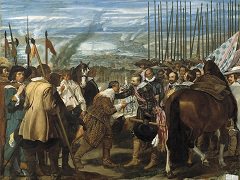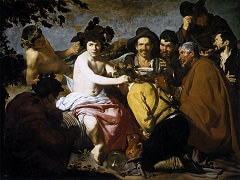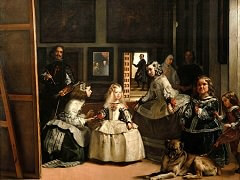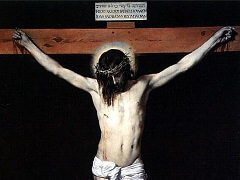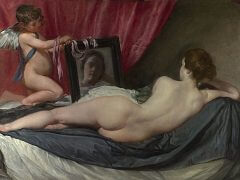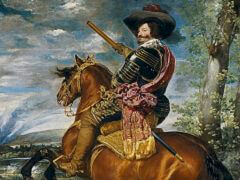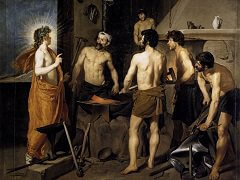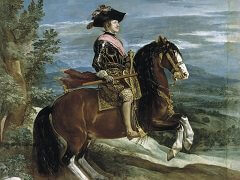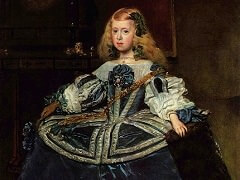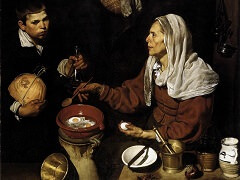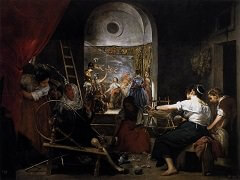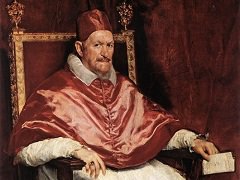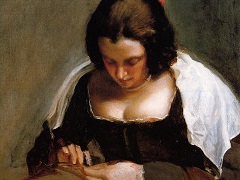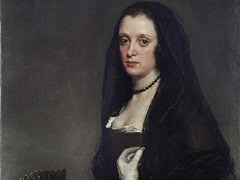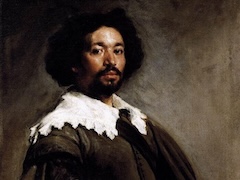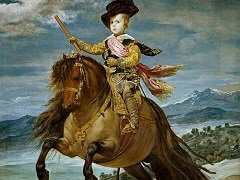The Adoration of the Magi, 1619 by Diego Velázquez
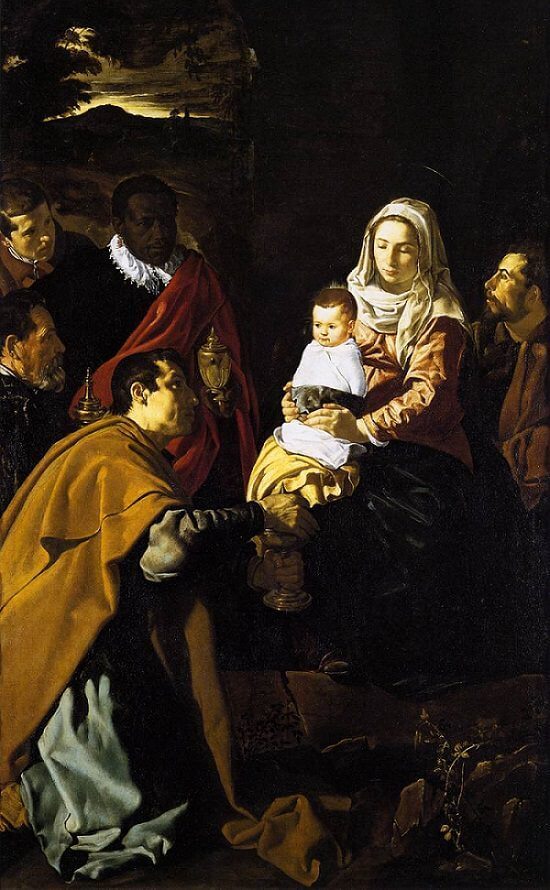
Velezquez was a pupil in Pacheco's workshop when he embarked upon his first large work, The Adoration of the Magi. In his early works Velezquez was still strongly influenced by his master; these pictures also reveal a marked striving for plasticity in the figures and balance between the different elements of the composition. He painted The Adoration of the Magi in heavy, dark colours and his lack of experience is evident in the representation of the faces. The main characters are thought to be portraits: the young king is a free self-portrait of the artist, while the kneeling king behind him has the features of Pacheco and the Virgin Mary those of Pacheco's daughter Juana, married to Velezquez.
And yet, the painting is more than a mere exercise by an industrious and talented pupil. It is true that he has not conveyed the quality of the textiles in his arrangement of the folds of the garments; the composition is somewhat uncertain and the spatial relations are by no means perfect: yet the picture reveals Velezquez's genius as a portraitist. The Madonna is depicted as a beautiful Andalusian peasant girl, her face glowing with maternal pride, the Infant is well observed, charming with no hint of idealization, and the features of Balthasar are exceptionally lifelike and worthy of note.

